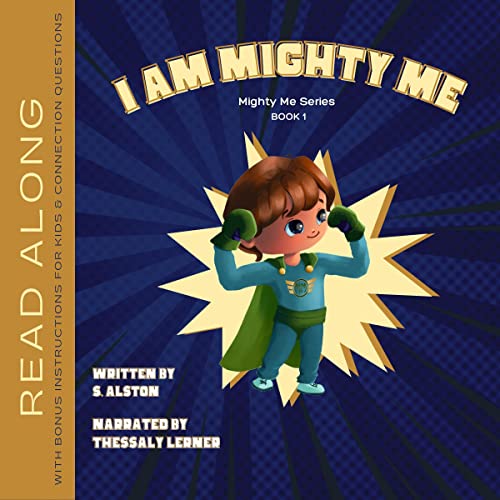To build self-esteem in kids, involve them in helpful tasks and acknowledge their contributions. Praising their efforts and providing support without criticism are also key to nurturing their self-worth and value.
Instilling self-esteem in children can be achieved by being positive role models, engaging them in activities they can take pride in, and demonstrating how important and valued they are. It’s essential to recognize the signs of low self-esteem in children, such as negative self-talk, critical comments about themselves, and unfavorable comparisons to others.
Furthermore, factors like feeling unsupported or criticized by significant individuals, especially parents, can lead to low self-esteem in children. Building self-worth and confidence in children is important for their mental well-being and overall development. Various resources are available to guide parents in supporting their children’s self-esteem and mental health.

Credit: confidentvoicestudio.com
Table of Contents
ToggleUnderstanding Self Esteem In Kids
To build self-esteem in kids, let them help and contribute to meaningful tasks. By seeing the impact of their actions and being praised for their efforts, children will develop a sense of self-worth and confidence. Encouraging kindness and acts of service also fosters positive feelings and self-esteem in children.
Understanding Self Esteem in Kids
Self-esteem is a fundamental aspect of a child’s emotional well-being, shaping their confidence and resilience. It encompasses their sense of self-worth, self-acceptance, and belief in their abilities. Nurturing a positive self-esteem in children is vital for their overall development, influencing their social interactions, academic performance, and emotional stability.
Definition Of Self Esteem
Self-esteem in children refers to their perception of themselves in terms of their value, capabilities, and potential. It is the internal evaluation of their worth and their belief in their ability to achieve their goals.
Importance Of Self Esteem In Children
Healthy self-esteem is crucial for children as it fosters resilience, optimism, and a positive mindset. It enables them to handle challenges, form healthy relationships, and pursue their passions with confidence. Moreover, it serves as a protective factor against mental health issues and peer pressure.
Signs Of Low Self Esteem In Children
– Saying negative things about themselves
– Making negative comments about their appearance
– Comparing themselves negatively to others
– Making negative comments about their achievements, such as at school
Low self-esteem can stem from feeling unsupported or criticized by important people in their lives, especially parents. When children perceive a lack of love and validation, they may begin to doubt their abilities and self-worth. Identifying and addressing signs of low self-esteem in children is essential for their emotional well-being and personal growth.
In conclusion, understanding and nurturing self-esteem in children is an integral aspect of parenting and education. By promoting a positive self-image and fostering confidence, we empower children to navigate life’s challenges with resilience and optimism.
Factors Affecting Self Esteem In Children
Factors affecting a child’s self-esteem include parental support and positive feedback, children helping and contributing at home, engaging in activities they enjoy, and avoiding comparisons with others. Encouraging children to complete tasks they’re interested in can also boost their confidence and self-worth.
Factors Affecting Self Esteem in Children
One of the vital aspects of a child’s development is their self-esteem. It plays a crucial role in shaping their confidence and resilience as they grow. Factors such as parental influence, the impact of peer relationships, and the effects of bullying can significantly affect a child’s self-esteem.
Parental Influence on Self Esteem
The influence of parents is paramount in shaping a child’s self-esteem. Positive reinforcement and encouragement from parents can greatly boost a child’s self-worth and confidence. On the other hand, constant criticism or lack of support can lead to a decline in their self-esteem.
Effects of Bullying on Self Esteem
Bullying can have detrimental effects on a child’s self-esteem. Verbal abuse and physical intimidation can lead to feelings of worthlessness and inadequacy. It’s essential to address and prevent bullying to safeguard the mental well-being of children.
Impact of Peer Relationships on Self-Esteem
Peer relationships also play a significant role in shaping a child’s self-esteem. Acceptance and friendships can bolster their confidence, while rejection and exclusion can lead to a diminished sense of self-worth. Encouraging positive peer interactions is crucial in nurturing healthy self-esteem in children.
The formative years of a child’s life are crucial for developing a strong sense of self-worth. As parents and caregivers, it is essential to be mindful of these factors and provide a supportive environment for children to thrive in.
Ways To Boost Self Esteem In Kids
Building self-esteem in kids is crucial for their overall well-being and development. When children feel confident and have a positive self-image, they are more likely to excel in school, build healthy relationships, and navigate challenges with resilience.
Being A Positive Role Model
A great way to boost self-esteem in kids is by being a positive role model. Children look up to their parents and caregivers, so it is important to demonstrate positive behaviors and attitudes. Show them how to be kind, respectful, and confident in themselves. By leading with a positive example, you are setting the foundation for them to develop their self-esteem.
Promoting Independence And Achievement
Encouraging independence and achievement can significantly boost a child’s self-esteem. Allow them to take on age-appropriate responsibilities and tasks, such as tidying their room or completing homework. Offer support and guidance as they navigate these tasks, but also give them space to make their own decisions and learn from their mistakes. Celebrate their accomplishments, no matter how small, to reinforce their sense of achievement and self-worth.
Offering Encouragement And Support
Show your child that you believe in their abilities by offering consistent encouragement and support. Praise their efforts, rather than just focusing on the outcome. For example, instead of only praising them for getting an A on a test, acknowledge the hard work they put into studying. Provide specific feedback and highlight their strengths, which can help them develop a positive self-image and build confidence in their abilities.
Teaching Self-compassion And Acceptance
Teaching kids self-compassion and acceptance is essential for building self-esteem. Help them understand that it’s okay to make mistakes and that failure is a natural part of learning and growth. Encourage them to be kind to themselves when faced with challenges and to practice self-care. Teach them to focus on their positive qualities and talents, fostering a sense of self-acceptance and self-love.
Creating A Positive And Nurturing Environment
The environment in which a child grows plays a significant role in shaping their self-esteem. Create a positive and nurturing environment at home by promoting open communication, active listening, and empathy. Encourage them to express their thoughts and feelings without fear of judgment. Create a safe space where they can freely explore their interests and passions, which will help them develop a strong sense of self and self-confidence.
In conclusion, boosting self-esteem in kids requires a combination of positive role modeling, promoting independence and achievement, offering encouragement and support, teaching self-compassion and acceptance, and creating a positive and nurturing environment. By implementing these strategies, you can help your child develop a strong and healthy sense of self-esteem, which will positively impact their overall well-being and future success.
Activities And Strategies For Building Self Esteem
To build self-esteem in kids, engage them in helping and acts of kindness to show their impact on others. Praise their efforts and avoid harsh criticism. Being good role models and letting kids learn and feel proud will also boost their self-esteem.
Show them how valued and important they are.
Engaging In Team Sports And Physical Activities
Participating in team sports encourages teamwork, boosts confidence, and promotes physical fitness.
Encouraging Creative Expression
Encouraging kids to express themselves creatively through art, music, or writing fosters self-expression and boosts self-esteem.
Developing Problem-solving Skills
Teaching kids how to solve problems independently helps them feel capable and builds their confidence.
Promoting Positive Self-talk
Encouraging positive self-talk helps kids develop a healthy inner dialogue and boosts self-esteem.
Providing Opportunities For Success
Offering kids opportunities to succeed and celebrate their achievements boosts their self-esteem and confidence.
Resources For Enhancing Self Esteem In Kids
Enhancing self-esteem in children is crucial for their overall well-being and development. Providing adequate resources can greatly help in boosting their confidence and self-worth. Here are some valuable resources that can aid in nurturing self-esteem in kids:
Recommended Books For Boosting Self Esteem In Children
- Giraffes Can’t Dance
- The Dot
- I Am Enough
- A Bad Case of Stripes
- Stand Tall, Molly Lou Melon
- The Invisible Boy
Professional Guidance For Improving Self Esteem
- Seeking professional guidance from therapists or counselors can offer tailored strategies to address and enhance a child’s self-esteem.
- Therapeutic interventions and counseling sessions can help children navigate their emotions and build a positive self-image.
Online Platforms And Supportive Communities
- Online platforms and supportive communities provide a space for children to connect with peers and express themselves in a safe environment.
- Engaging in online discussions, participating in forums, and accessing educational resources online can reinforce positive self-perception in children.

Credit: www.amazon.com

Credit: www.thechildrenscenter.com
Frequently Asked Questions Of Build Self Esteem In Kids
How Can I Improve My Child’s Low Self Esteem?
To improve your child’s low self-esteem, involve them in activities where they can help others and see the impact of their actions. Encourage their efforts and avoid harsh criticism. Be a positive role model to boost their self-worth. Show them love and value, and let them try new things and face challenges.
Consider seeking professional help if needed.
How Do You Instill Self-esteem In Children?
Boost your child’s self-esteem by involving them in meaningful activities and showing appreciation for their efforts. Encourage them to help others and engage in positive behaviors to build self-worth. Showing support and praise can help instill confidence and a sense of importance in children.
What Are 5 Characteristics Of Kids With Low Self Esteem?
Children with low self-esteem may exhibit signs such as negative self-talk, lack of confidence, seeking approval, fear of failure, and avoiding challenges.
What Causes Low Self Esteem In Childhood?
Low self-esteem in childhood can be caused by feeling unsupported or criticized by important people in their lives, especially their parents. When children don’t feel loved and valued, they may start to doubt themselves, their abilities, and their self-worth.
Conclusion
To build self-esteem in kids, it is important to let them feel valued and important. Encouraging them to help and do kind acts for others can boost their self-esteem and cultivate positive emotions. Being a good role model, praising their efforts, and avoiding harsh criticism are also effective ways to instill self-esteem in children.
It is crucial to create a supportive and loving environment where children feel accepted and cherished for who they are. By following these strategies, parents can lay the building blocks for healthy self-esteem in kids.

Mother of Two children. I’m a former teacher with a background in child development and a passion for Good parenting. I understand child development and know how to develop activities to help children learn and grow. Spare time, I enjoy spending time with my family, reading, and volunteering in my community. Read More








